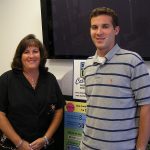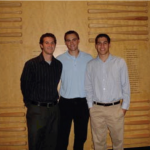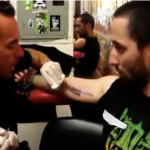How To Become a Career Counselor
My name is Shelia Curran. I’m the Executive Director of the Duke University Career Center.
And you just wrote a book. Can you tell us a little bit about what it’s about?
The book is called Smart Moves for Liberal Arts Grads: Finding a Path to Your Perfect Career.
The reason we wrote the book is because so often the students go through education on auto pilot and don’t really know what it is that they want to do at the end. But they find on campus recruiting opportunities and they say, ‘That’s what I should be doing.’ What we’ve found though is there are some things you can do to really find the work that you want to do. But it takes a little bit of work. So we wrote the book to show the stories of the people who have done that, and how they went from being in college to finding work that they loved.
Do you have any hints that you can give us?
Don’t hyperventilate about that first job. Because the first job is more than likely not going to be your first career job. We found at Duke that 80% of the students when they graduated, within five years they’ve changed their job. 43% of them had actually changed their careers.
Do you think that they’re changing that first job because they don’t like it? Or because when you come out you’re not necessarily ready to take that first job? So it’s a learning experience regardless of what it is.
I think it’s both. What the graduates said after five years was that at the time they took that first job, they thought it was really the right thing for them. But most of them, when they left, left because it wasn’t a good fit. Which means that it could be exactly the right kind of work, but it might be in the wrong environment. Environment is one of those things that’s not well understood by graduates. You’re looking for the job. You’re looking for the money. You’re not really looking beyond that to who you really want to work with. And is this the kind of environment that you want to be. Do you want to work 100 hours a week, or do you want to do something that you’re really passionate about even if it doesn’t pay much more than minimum wage.
Do you think college campuses are doing all they can to prepare students for when they get out?
I think they’re trying to do a lot of different things on college campuses. But if you think about the staffing within the career center, very few places are staffed up to give the kinds of services that students really need. Because in order to find work that you really want, it takes a relationship between you and a career counselor or someone who really cares about you. So that you can find not only what it is that you want to do, but also identify the strategies to get there. It’s not enough to refer people to websites, even though the websites are incredibly helpful. That personal contact is really important. If you’re in a good college with a good career office that’s well staffed, it’s really up to the students to take the initiative to come in as soon as they’re ready so they can start working over a multi year period to find the internships. Because it’s through the internships that many students are going to find out what they want to do with their lives.
That’s what you’re instituting at Duke? The internships are really important. Ideally, kids would come into that career center their freshman year? Would they go try a couple things and come as late as senior year?
What we recognize is that there is such a thing as career readiness. Some students are ready in their first year. Others aren’t ready until after they graduate. What we try to do is timely career planning and career helping.
If you come in on your first year in a situation. I’m working with a sophomore right now who hasn’t had an internship before because he’s a varsity athlete. We’re talking about how to do an independent job search so that you’re not reliant on what’s on the internet. But rather that you can figure out what it is that you want to learn that I can give to that organization. And how do I find organizations within my environment so that I can go back home to live and it’s not going to cost me quite as much money. Every step builds on every other step.

What makes someone career ready?
They want to put the time and the effort into doing it. That’s basically all it is.
They’re willing to listen to other people and hear other people’s ideas so they don’t go into it with just a one track mind that they’ve got to go in one particular direction.
Although we don’t really work with people who are like that.
What’s the best thing to do if you graduate and you’re not career ready?
Find a lot of temporary jobs. There are five smart moves in the book we wrote. Number one and number two are interchangeable. Number one is figure out who you are and where you want to go. Number two is get experience.
In my experience, about 90% of students and graduates do it the opposite way around. They get the experience because it’s through the experience that they figure out what they do and don’t want to do. That helps them figure out who they are and where they want to go.
Is there an age you’ve found that people generally career ready? Is there a certain time in a person’s life where they’re ready to make that jump?
I think there’s a critical part, and that’s when you get your quarter life crisis at 23. You’ve been out of school for a couple years and you say, ‘What the hell am I doing with my life?’ And then you go back to what you really enjoyed.
There’s one story in our book that I particularly like. It’s of a graduate in Math and Econ who always thought he was going to go to IBM because he had done internships at IBM. He came to Duke on an IBM scholarship. But what he really wanted to do was work in Hollywood and be a stunt actor. He went through five different career fields before he actually got to his dream job, which is playing Indiana Jones at Walt Disney World.
How old was he when he found that?
He graduated in ’92, so fifteen years ago. But he’s been doing it for several years now. It was about ten to twelve years before he finally got there. He could have probably gotten there a little bit quicker if he had given himself permission to dream about that job.
Permission to dream? That’s not disqualifying yourself from something?
Permission to dream is saying what you would ideally like to do. And going into it with a 100% attention. Putting all of your efforts in the direction that you would really like to do. I’ve never known anyone to regret following their passion, even if it means they ultimately can’t make a living out of doing it.






